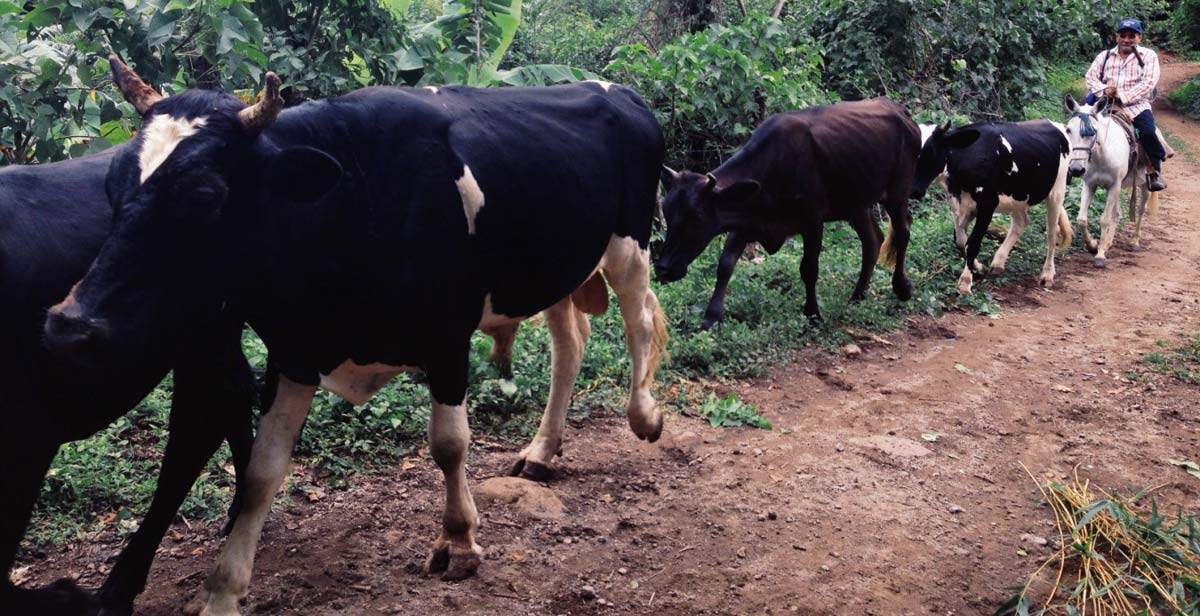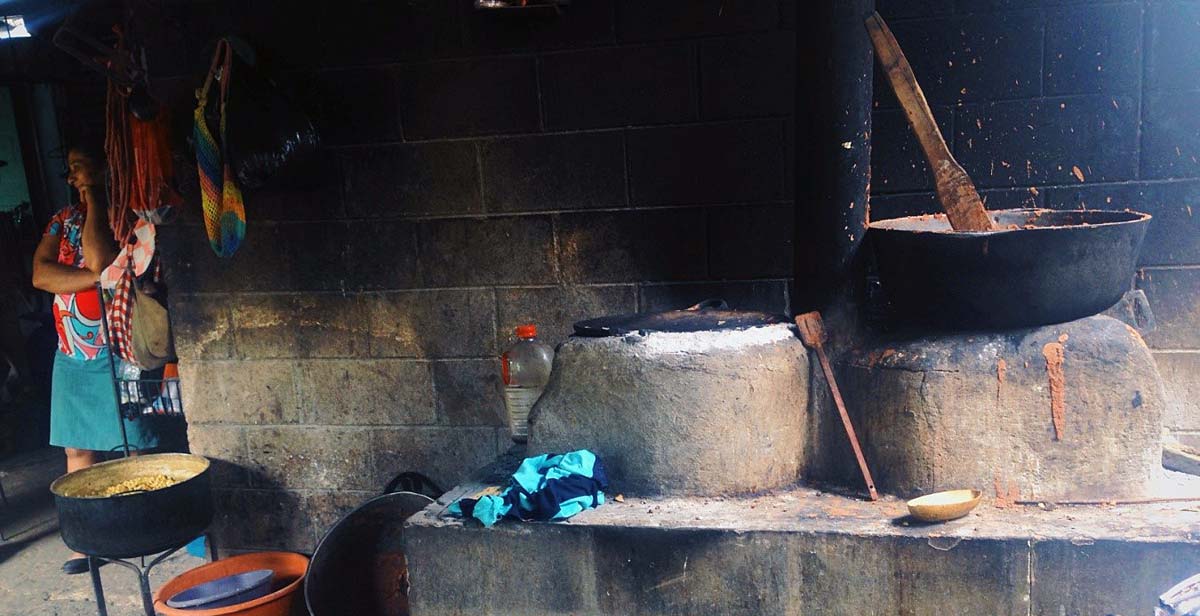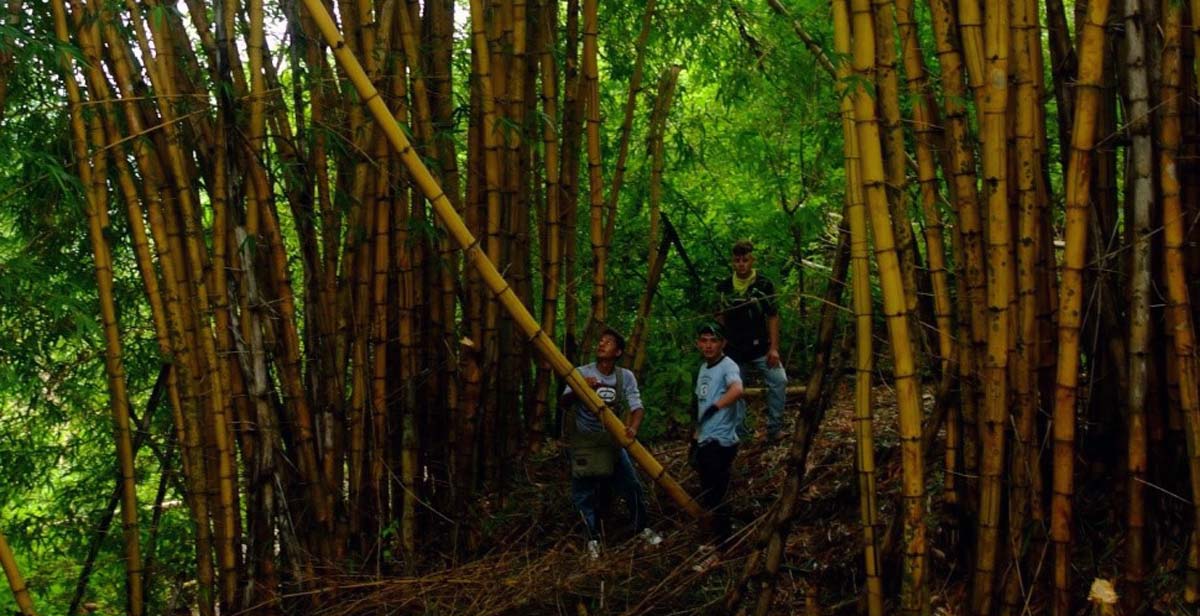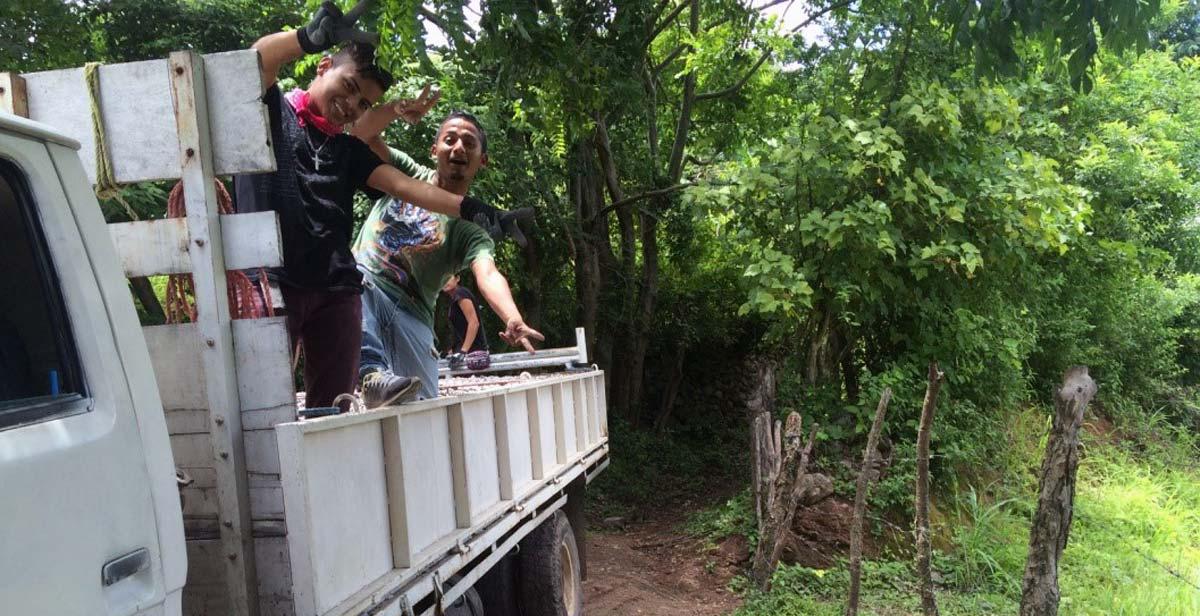When we first came here (back in July) we really could sense and point out the cultural differences between the UK and El Salvador. It is fascinating how a different part of the world has completely different ways of doing things, from hanging off the back of trucks to saying “Buenas” to anyone and everyone. While everyone in England wouldn’t even think about it, neither would they walk along the street and smile saying hello to everyone - it’s practically unheard of.
The village of Arcatao is very beautiful, full of colour and built mostly by the community with their bare hands, and there is much less reliance on machinery here in comparison to the UK. To these people working means working together, helping each other not “every man for himself”. They rely on the crops for a source of food and income, therefore, everyone gets involved to make sure the crops survive, otherwise they would struggle. But in England our struggles differ to those here in El Salvador - if our crops fail, it won’t have a huge effect on us as we get imports from around the world. Our problems generally stem from situations less crucial to our survival than the production of food.

One of the first things that strike you working with a bunch of national volunteers everyday are some of the differences in mentality between our two countries. Most people here seem much more relaxed and easy going, if we encounter a problem they either find a solution or if that proves to be too difficult they just let it go... “tranquilo!” - relax! It’s refreshing to be around this healthy mentality. If a problem is out of your own control, there is no point in getting worked up about it. Over the weeks we have adjusted to this, allowing ourselves to take a step back and be more accepting of situations that present themselves. It hasn’t been easy, but I think it is safe to say we have all adapted to the fact that things don’t always go to plan!
This attitude stems from their admirable, simple way of life. For most of the inhabitants of Arcatao they live life day-to-day, unlike us Brits who always seem to be concerned with our futures and wanting more and more out of life. It seems in our society, we are rarely content with what we have - always wanting more, and constantly putting ourselves under pressure to achieve the life society enforces on us. It is reassuring to be surrounded by a group of young individuals who are less influenced in this regard, and who take joy from simple things in life and don’t overthink every little detail of their life.

Saying that, some of our friends here do desire bigger and better things, like the opportunity to work and live in the United States of America. However, the majority would not trade their self-sufficient simple lifestyle for the ´idealistic ‘office job that rolls in the big bucks. I would say they have their priorities right! It is quite embarrassing working with these volunteers as they all have such a vast array of skills because they are used to doing everything for themselves - they don’t turn to a specialist when they have a problem, they learn from a young age how to be independent and find solutions themselves.

The way they go about work is motivating. In the most difficult circumstances their mindset is how can we fix this or how can we go about that? The national volunteers here are hard working as well as thoughtful and caring, they’ve grown up to enjoy the little things not expecting too much, which we sadly tend to do sometimes. We forget that there is always someone somewhere who works just as hard as they do but get less for it. We could take a page out of their book, by living for the little things, recognising that with hard work and determination we can get more out of life than we realise we could. For me being in this kind of environment has opened my eyes and mind to different possibilities. Just being surrounded with young people who want to help and change for the better, just goes to show that no matter where you live or who you are or how much money you have, you can make the tiniest change, which can result in a big difference for whoever it helps.
Written by ICS volunteers Katherine Maloney and Jess Morton



